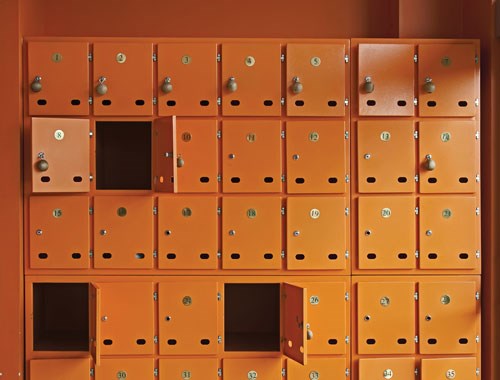It Takes a Factory to Make a Manufacturer
… unless you work in Washington D.C., where they are trying to create a classification for Factoryless Goods Producers (FGPs). PMPA helps our members intelligently manage regulatory risk by paying attention to proposals in Washington D.C. that could have a harmful effect on manufacturing and their businesses.
… unless you work in Washington D.C., where they are trying to create a classification for Factoryless Goods Producers (FGPs).
PMPA helps our members intelligently manage regulatory risk by paying attention to proposals in Washington D.C. that could have a harmful effect on manufacturing and their businesses. We call this PMPA Regulatory Assurance.
We have been paying attention for some time to reports out of Washington that the Economic Classification Policy Committee (ECPC) of the Census Bureau was considering changing the definition of manufacturing to include, “Factoryless Goods Producers” as part of an update to the North American Industry Classification System (NAICS) 2017.
According to the Federal Register notice, factoryless goods producers are “manufacturing units that outsource transformation.” In other words, manufacturers that don’t actually manufacture. In many cases, this is compounded by the fact that the manufacturing that is outsourced is sent overseas. Here’s the main question: How can a “manufacturer” be a “manufacturer” if it doesn’t manufacture?
Buying stuff from other manufacturers isn’t manufacturing—it’s wholesale trade. Here is how the U.S. Census wants to define Factoryless Goods Producers:
“A factoryless Goods Producer (FGP) establishment outsources all of the transformation steps traditionally considered manufacturing (i.e., the actual physical chemical or mechanical transformation of inputs into new outputs), but undertakes all of the entrepreneurial steps and arranges for all required capital, labor and material inputs required to make a good.” - Factoryless Goods Producer Fact Sheet
That is not manufacturing. Outsourcing is not “making.” It is buying to order. It is wholesale trade, not “manufacturing.” If the ECPC gets its way, there will now be three types of manufacturing establishments:
- Traditional or integrated manufacturer, which utilizes inputs such as capital, labor and energy to transform material inputs into a new product to be sold.
- Manufacturing service provider, which provides contract manufacturing services that utilize inputs such as capital, labor and energy to transform material inputs according to the contract specifications. Most precision machining contract manufacturers are considered manufacturing service providers (MSPs).
- Factoryless goods producer, which outsources all of the transformation steps that traditionally have been considered manufacturing, but undertakes all of the entrepreneurial steps and arranges for all required capital, labor and material inputs required to make a good.
If an establishment doesn’t actually manufacture something, why should it be classified as a manufacturer? If your company doesn’t have a factory and means of transforming inputs into goods, why should it be classified as manufacturing? If a firm doesn’t employ workers to transform inputs into finished goods, why is that manufacturing?
We understand that the establishments that totally outsource production are part of commerce. We just object to calling them “manufacturers.”
Here is why we oppose classifying FGPs as Manufacturers under the NAICS:
- Many times, they outsource from foreign companies. NAICS is based solely on North American (Mexico, United States and Canada) production. Adding foreign production into North American statistics will make the NAICS-based statistics wildly inaccurate regarding North American factors of production.
- Adding FGPs’ data will inflate certain indicators, while other factors remain unchanged. This will provide a distorted picture of North American manufacturing.
- The NAICS classification system is based on the promise of shared/similar production processes being classified together. FGPs do not share any production processes with real manufacturers; they simply buy finished products.
As we continue to struggle in our work with the folks in Washington D.C. over the issue that the meaning of words and indicators should actually reflect reality, in Washington D.C., the idea that manufacturers must actually make something is a quaint and charming anachronism overdue for replacement. The fact that NAICS is based on classifying establishments based on shared processes, and that it is limited in scope to production in North America seems to have escaped the thinking of the folks at the Economic Classification Policy Committee of the U.S. Census.
PMPA has provided comments and will provide testimony to help the folks in Washington keep the NAICS classification system for manufacturers honest and true to its foundational principles: manufacturing means making things, and only North American processes should be counted as production. PMPA regulatory assurance has meant testifying before Department of Labor OSHA earlier this year, providing comments on proposed EPA regulations and signing on to Amicus briefs on manufacturing cases before the Supreme Court. You have businesses to run. Our mission is to advance and sustain our members while advocating for manufacturing. PMPA regulatory assurance is part of each and every PMPA membership.
Read Next
5 Aspects of PMTS I Appreciate
The three-day edition of the 2025 Precision Machining Technology Show kicks off at the start of April. I’ll be there, and here are some reasons why.
Read MoreA Tooling Workshop Worth a Visit
Marubeni Citizen-Cincom’s tooling and accessory workshop offers a chance to learn more about ancillary devices that can boost machining efficiency and capability.
Read MoreDo You Have Single Points of Failure?
Plans need to be in place before a catastrophic event occurs.
Read More











.png;maxWidth=300;quality=90)







